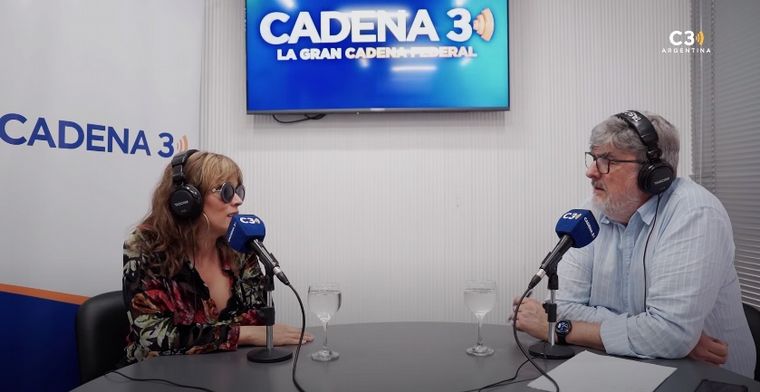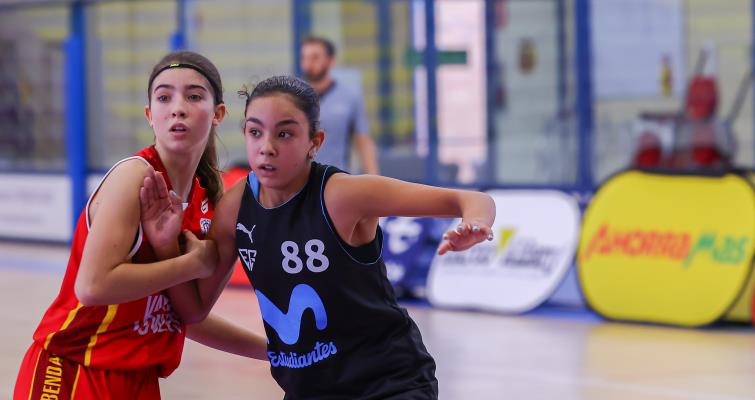The writer Camila Sosa Villada wrote her first novel titled “Las malas” in 2019, about a group of trans people who practice street prostitution in Parque Sarmiento in the city of Córdoba. The writing was a success and promoted her as one of the most original writers of LGBT literature in Argentina.
The success of her works led her to have her works translated into more than 20 languages.
/Start Embedded Code//End Embedded Code/
She was born in La Falda on January 28, 1982. In conversation with Cadena 3, Camila affirms that she built her identity from a very young age. At the age of 14 she began dressing as a woman and she assures that things have changed very quickly in recent years. “It was more complicated to live in Traslasierra than in Córdoba,” she added.
The actress participated in the Summer Talks series with Sergio Suppo, where she spoke about her life, how she was building her identity, her passion for literature and her role as an actress. Before “Las malas”, Camila participated in numerous plays, she ventured into television and also into film.
/Home Embedded Code/
/End Embedded Code/
Below are the main phrases from the interview:
The life of Camila Sosa Villada
• I was born in La Falda, but I lived there for a very short time. I lived in Cruz del Eje, Los Sauces, Huerta Grande, Córdoba, Mina Clavero, where my parents finally built a house. Now I am living in Córdoba.
• Having lived in Córdoba and in the western province shaped my character a bit. In Traslasierra we lived in very poor conditions in a very old house. My childhood was in Cruz del Eje, in a very large house where I had my first four books.
• There was only radio, sometimes television, which used to break quite often.
/Home Embedded Code/
/End Embedded Code/
His identity
• I started building my identity since I was born and dressing as a woman in Mina Clavero when I was 14 years old. Traslasierra was more complicated than Córdoba, the small towns are big hells. We’re talking about 25 or 30 years ago, that’s a long time.
• Things have changed very quickly and it was more complicated to live in Traslasierra.
• I wanted to study Biology and I made a mistake with the dates to sign up and I enrolled in Information Sciences. I studied Social Communication for four years and as soon as I started I joined a theater group at the student center. Three years after doing the workshop, my best friend “La Cora” signed up for theater and I followed her because she didn’t want to be alone.
• I didn’t look at myself or imagine myself acting or putting on a play, I just followed Cora and I was pleasantly surprised by the reception they gave me. They accepted me and I felt much more contained than in Communication. When I met “Paco” Giménez, I got what mattered most to me, which was having met him and his gaze.
/Home Embedded Code/
/End Embedded Code/
The passion for writing
• I started writing when I was five years old, in Los Sauces: they were letters, poems to the teachers, to my father, to my mother. Then I continued with compositions of free themes and continued with poetry. Poetry is something that is not left behind.
• My books were translated into 20 languages, some readers write to me on Instagram and X. I find out what’s happening through the book clubs.
• I write about everything and every day, whether I’m awake or before I go to sleep. It is not a general rule.
• I am a reader first and a writer second. I read a lot when I was younger, more than when I grew up. After the coronavirus it began to be very difficult for me to concentrate when reading, except in cases of writers who consume you and you read them in one sitting.
• I read more female writers than male writers because women have the habit of always having been on the bottom shelf of bookstores, without being recommended, criticized or read by anyone. The writers had more responsibility because the press did attend to them, they gave them awards. It is a tradition that has not yet been lost.
/Home Embedded Code/
/End Embedded Code/
• Women generally take more risks and I find that more attractive to tell a story.
• Borges creates erudite literature, which is difficult to follow. Some of his books are very difficult for me and others not so much. Who doesn’t want to seem erudite in writing?
• I write to think about myself, how I use words. Then I think of the other. In cultural matters, everything is inspiration when traveling.
• Rubén “Corcho” Goldberg is very good at recommending books, he has impressed me as a reader.
• Books help me entertain myself, pass the hours, imagine other worlds.
/Home Embedded Code/
/End Embedded Code/
Interview by Sergio Suppo.
2024-01-11 10:25:41
#Camila #Sosa #Villada #actress #writer #Cordoban #woman #read #languages


